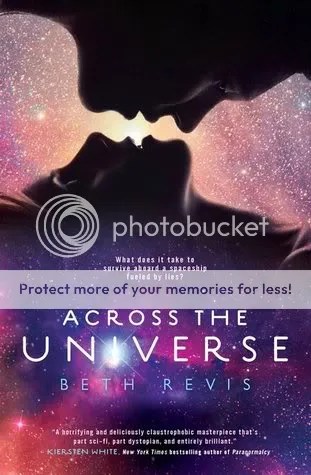A Guest Post by Rachel Geertsema
~
 Have you ever been tempted to reply to someone who rejected you to tell her that she doesn’t know #@%$ about writing? Or have you replied to a rejection with your next work attached? I’m here, on behalf of agents and editors everywhere, to say: “For the love of all that is holy, please STEP AWAY from the computer.”
Have you ever been tempted to reply to someone who rejected you to tell her that she doesn’t know #@%$ about writing? Or have you replied to a rejection with your next work attached? I’m here, on behalf of agents and editors everywhere, to say: “For the love of all that is holy, please STEP AWAY from the computer.”
Submission etiquette is hard. How do you know what is crossing a line and what is simply asking for another chance? Some agents are willing to take a look at something else of yours, and even encourage you to resubmit once you’ve worked on your MS a little more. Some editors may flat out ignore you if you try to do this. Some interns may laugh a little at your attempts to impress (and on behalf of interns everywhere, I apologize). However, you CAN improve your chances and gain the appreciation of an agent/editor/intern by learning some etiquette regarding submissions.
The absolute golden rule of submitting is: Find each agency/publisher’s submission policy and follow it exactly. If you learn nothing from what I have to say, please, please at least learn this. But, aside from following submission policies, there is no hard-and-fast rule for what is or isn’t acceptable when you are submitting queries. I’m here to guide you through this dark world and help you learn some boundaries.
- Don’t harass the agent/editor. Asking him if he has received your partial/full that you emailed is fine. Emailing her every week to see if she’s looked at your MS is not. We are busy people with a LOT of queries to wade through. If you keep asking, a) chances are we don’t even know which is yours and so lie through our teeth, or b) we may lose interest in your MS because we’re so annoyed.
- Like I said above, follow the publisher’s/agency’s submission guidelines to a T. I can’t express the outrage that occurs in an editor’s heart at receiving a full MS when the publishing house’s website CLEARLY states “Please send only a query,” or when, after requesting some sample chapters, your submission contains 5 random chapters to give the “full effect” of the book. It doesn’t. It only creates confusion, frustration, and anger, and a less than 10% chance that it will be read.
- Don’t attach your new MS (or 5 others, “just in case!”) in a reply email to a rejection. At the very least, ASK if you can submit something else. And don’t work your way through the list of everything you’ve written since you were 5. Sometimes you really do need to accept that it wasn’t meant to be.
- Being rejected does not give you license to do any of the following:
a) Write back saying anything aside from “Thank you for taking the time to read my submission.” If you received a really helpful rejection, ask if you can resubmit after reworking your MS. Do not call the rejecter names, question her reasoning, or threaten him.
b) Find his Facebook/Twitter/phone number on the internet and harass him.
c) Write nasty things about her on any website like Absolute Write, Query Tracker, or any other outlet on the internet that is a cesspool of rejected authors complaining about the unfairness of life. WE READ THESE.
Once you’ve got this down, it’s time to move on to the real show. Here are some tips and tricks that do not cross any personal or professional boundaries:
- For the 5th time in this post, I am begging you to follow submission guidelines exactly as they are laid out on the publisher/agency’s website. They are there for a reason, not to create rules that you are required to creatively break. Editors/agents don’t have time to wade through your creative vomit to figure out what your book is about.
- Spell the company’s name right, at least. I’ve lost track of how many submissions I’ve received in the past five months that have my company’s name spelled incorrectly. If you can’t be bothered to double check that you’ve spelled things right, I can’t be bothered to be interested in your MS.
- Be patient, understanding, and gracious. The business of publishing is stressful and editors and agents are often doing the work of two people.
- Don’t provide 4 pages of your personal achievements. Unless your personal life relates to your MS, I don’t care.
- If you receive a form rejection, you can submit a new MS, but not in reply to that rejection. Start from scratch. If you’ve received a personal rejection, you can ask in reply if you can resubmit in the future or if you can submit something else. Either way, send a query letter along with your MS as a formality. If you resubmit, send a brand new query letter that mentions your history with the company (as a refresher!). If you are allowed to submit something new, approach it with the same professionalism—provide a query letter or outline of your work.
- On the flip side, if you haven’t heard back about a query you submitted months and months ago, forget about it and move on. The publisher/agency just isn’t interested, ok? (I’ve received a number of angry phone calls from authors who say they submitted 5 months ago. Sorry, but we’ve forgotten about submissions from 5 months ago.)
Remember that on this side of publishing, we want you to succeed as much as you do. Guidelines and policies are in place because we just don’t have the time to wade through the huge variety of submissions we would otherwise get. I can promise you that following a company’s guidelines is always noticed and appreciated by those of us who can get lost in the slush pile for days on end (and yes, I have literally spent days devoted to reading submissions in the slush pile).
Now that you have this insiders’ knowledge, you can query in complete confidence! Happy querying!
~~~
Rachel has spent the past year wading through slush piles at a variety of publishing companies, including a literary agency (with LTWF contributor Vanessa), academic publisher, and trade publisher. She is also a freelance editor and has nearly completed a publishing certificate at Ryerson University. She can also make the best cupcakes north of the border. You can follow her on Twitter @r_geerts.
























 LTWF Facebook
LTWF Facebook LTWF Twitter
LTWF Twitter